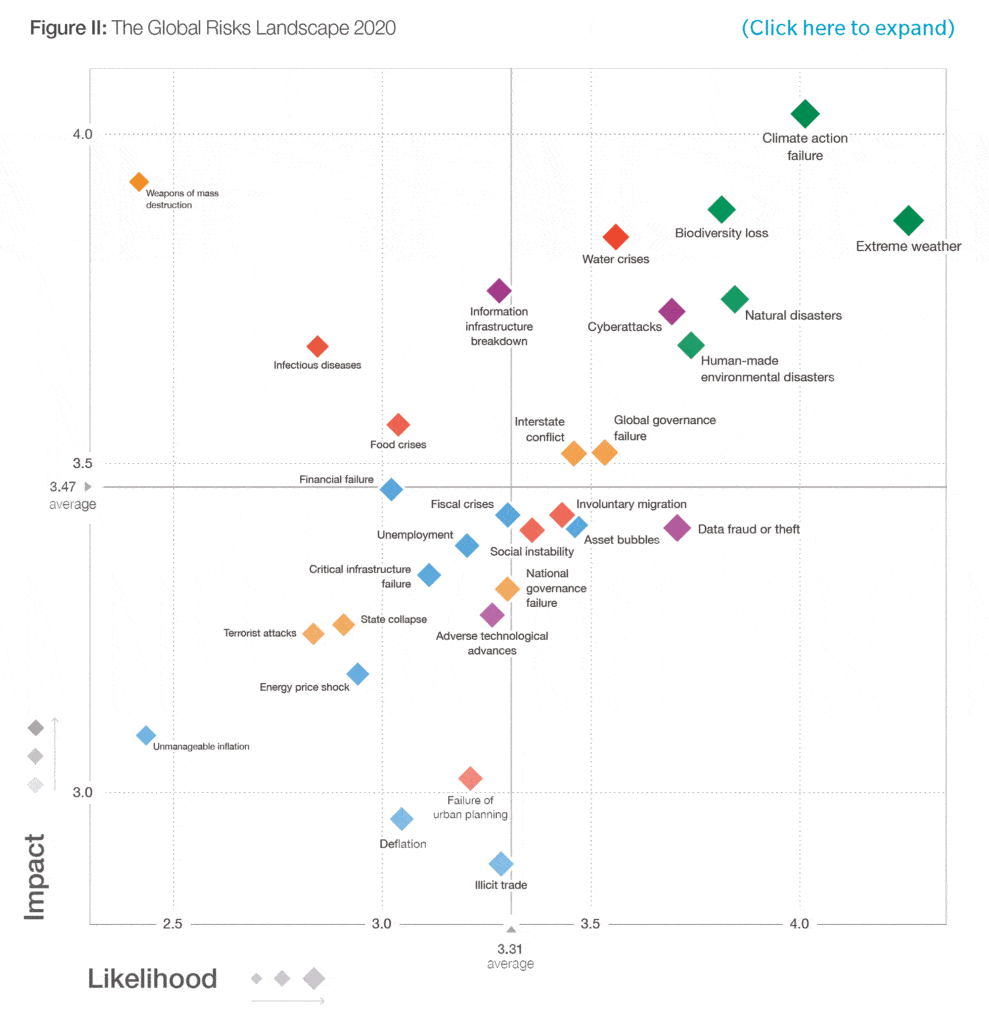The reality is we experience business executives still having doubts about it. The biggest challenge seems to be, how to substantiate the investments needed and how to calculate a simple RIO. But there are no shortcuts or quick wins here. What is needed is a longer term vision, strategy and persistance. Therefore we need to stop debating whether adopting sustainability practices make sense. The evidence is already there, and it is overwhelming. We would like to invite the fence-sitters to stand up and face reality.
Companies should not postpone this transition, because competitors are not doing it just yet. The changing global landscape — climate change, resource depletions, social inclusion, clean technology and renewable energy, and increased demand for transparency — are already affecting business directly. Extreme weather threatens supply chains and operations. Global action on climate change is shifting regulatory landscapes and markets. Rising expectations from customers require companies to tell a better story about their products and services. And with new technologies creating radical transparency, companies need to better back up their stories with data.
Allow us to elaborate on six specific arguments, who we feel cannot be denied:
Access to capital
Sustainability is already driving the way companies have access to capital. Larry Flink (CEO Blackrock, almost 7 trillon$ assets under management) has written a formal letter to CEO’s stating: ‘The evidence on climate risk is compelling investors to reassess core assumptions about modern finance. Research from a wide range of organizations – including the UN’s Intergovernmental Panel on Climate Change, the BlackRock Investment Institute, and many others, including new studies from McKinsey on the socioeconomic implications of physical climate risk – is deepening our understanding of how climate risk will impact both our physical world and the global system that finances economic growth. Sustainability ‘laggards’ already start seeing difficulties in getting access to capital. As capital availability will decrease due to the COVID-19 crisis, the laggards are likely to start feeling the pain first.
Sustainability delivers profit and growth.
We have heard the argument that ‘sustainability costs money’ numerous times. But this argument only holds in a limited number of cases. There are many examples available where ‘green solutions’ have fueled growth, profit as well as margin. For instance, in 2018 Unilever reported that their sustainable brands grew 46 percent faster than their ‘regular’ brands. DSM has reported that their margins on ‘Brighter Living Solutions’ are higher than over their regular market alternatives. Companies with smart sustainability practices slash costs, drive innovation, and build brand value. They’re more profitable. And on the specific issue of carbon footprint, the rapid and dramatic improvement in the economics of clean technology means companies can reduce their emissions and energy use, and make money doing it. In short, sustainability isn’t remotely at odds with profits.
Customer demand is on the rise
In line with the above, we often see that customers are becoming more vocal, when it comes down to environmental or social performance of their products. And this is happening in various sectors: retailers are already asking their suppliers to deliver ‘life cycle assessments’ of their products to assess environmental sustainability. And in the construction sector, more and more ‘green tenders’ emerge in which sustainability performance is an important part of the tender evaluation. If companies fail in delivering to their client needs, they will be faced with a strong decline in orders, resultingh in severe business consequences.
The EU green deal and legislation is underway
In 2019 the EU announced its plans for a major green deal, accelerating the circular economy and climate action. The purpose being to create long term prosperity and jobs for the new economy. The EU already announced that it is not planning to delay the plans due to the current Corona crisis. In fact, the EU sees the current crisis as a change to prioritize the business of sustainable leaders, by adding ‘green criteria’ to support programs. Hence, it we can expect sustainable frontrunners are more likely to survive the current circumstances than their non-sustainable counterparts.
Access to talent
Notorious polluters or companies with poor social performance have a hard time in attracting the best talent. The Dutch ‘Financial Times’ have elaborated extensively on the shortage of new technical talent within the oil & gas sector. Within the apparel sector, we also see sustainable brands being far more attractive as employer. Tesla, Patagonia and Toms have a huge attraction on the next generation of customers and employees alike.
Environmental business risk emerges
The World Economic Forum releases a ‘global risk landscape’ on an annual basis. The analysis in 2020 revealed that environmental risks (climate, biodiversity etc.) are at the top of the business risk ranking, reflecting the reality that environmental risk should be taken seriously and be managed by businesses. The analysis is a recognition of every argument in this list and re-emphasizes the crucial importance of sustainability to businesses.

All agree long term survival of companies depends on their adoptability of a changing reality. So where does that leave you, business leader (of the future)? How will you transform from a ‘strategy on sustainability’ to a true sustainable business strategy? Want to dive deeper and discuss further, reach out to us.
Authors: Roel Drost & Edwin de Zeeuw
